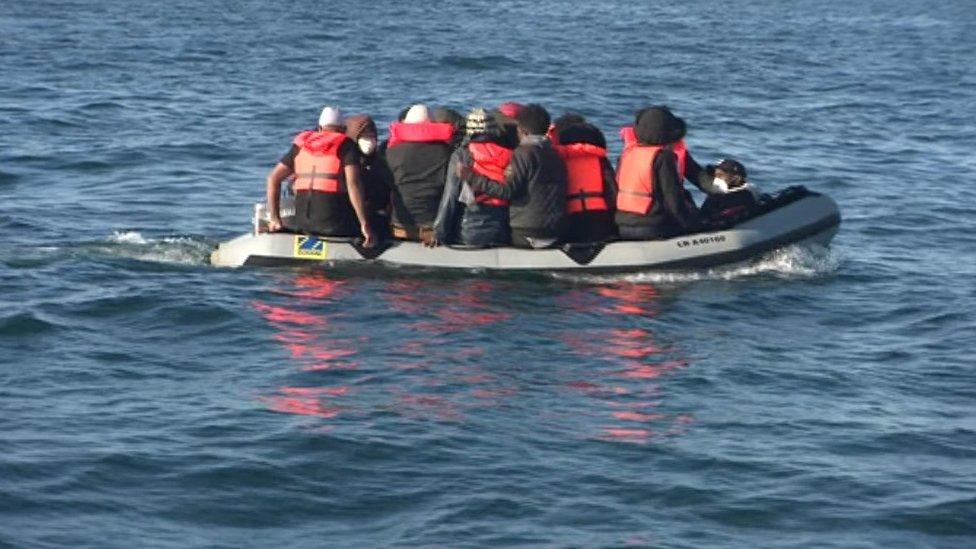Manston migrant centre conditions appalling and inhumane, charity warns
- Published
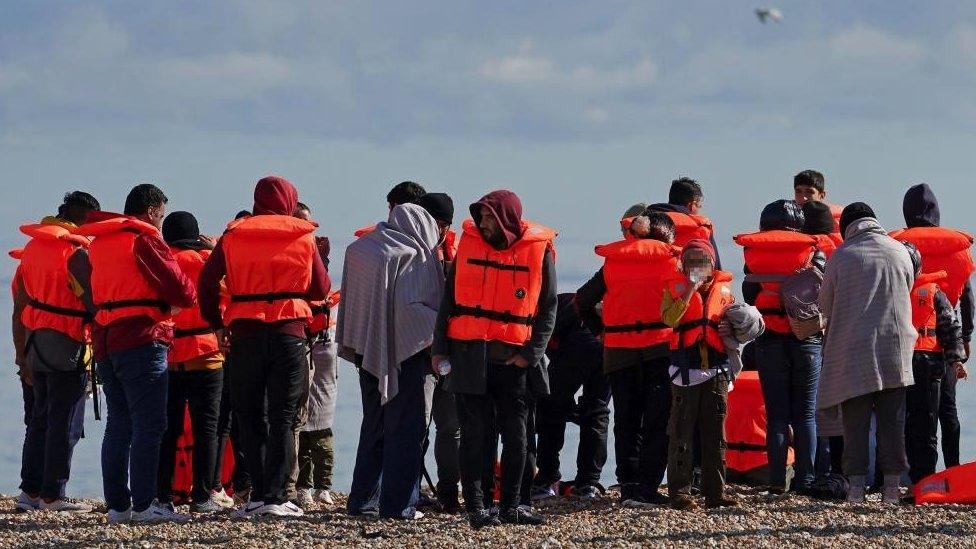
The Refugee Council claims about 3,000 people migrants are being held in the facility at Manston
A refugee charity has described conditions at a Home Office facility for cross-Channel migrants as "inhumane" with overcrowding, disease and children sleeping on floors.
The Refugee Council said about 3,000 people are being housed at the former military airfield at Manston in Kent.
It was originally meant to hold 1,000.
The Home Office said the site was properly resourced and equipped, and alternative accommodation would be provided "as soon as possible".
One 17-year-old the Refugee Council is working with was held at Manson for 19 days, even though the Home Office said the maximum stay should be 48 hours, and children are not supposed to be accommodated at the site.
The boy contracted scabies while staying there, the Refugee Council claimed.
Last week, the Prison Officers Association raised concerns about the ability of the site to care for residents and perform its core function of assessing and processing migrants and asylum seekers in a timely manner.
It likened the situation "to a pressure cooker coming to the boil", with reports of incidents escalating, altercations between residents resulting in injury and police having to be called to the site to investigate assaults and support staff.
It had also been informed of days when the facility had run out of food and drinking water for residents.
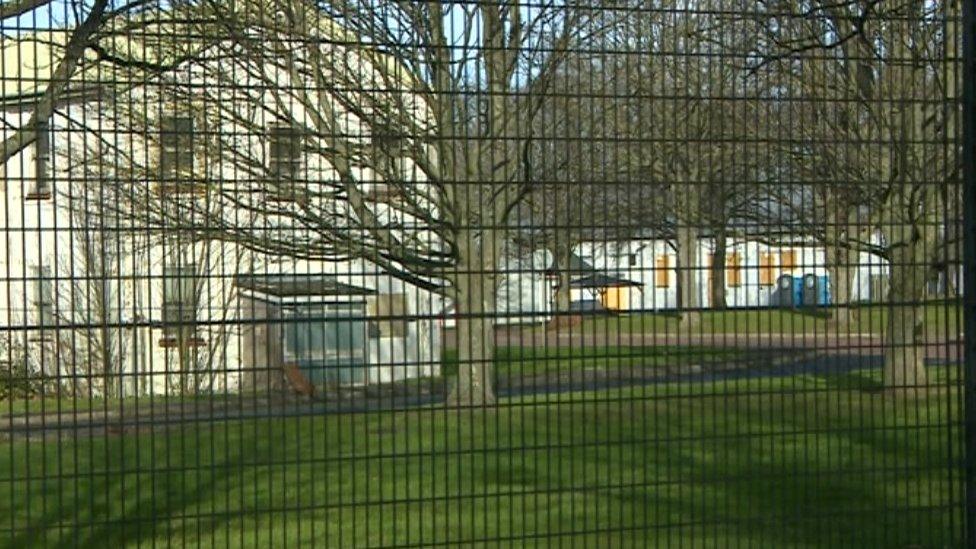
The processing centre at Manston was opened in January
In a statement issued last week, the Home Office said the continued rise in dangerous small boat crossings was causing "an unprecedented strain" on the asylum system.
"Manston is resourced and equipped to process migrants securely and we will provide alternative accommodation as soon as possible," a spokesperson said.
Enver Solomon, CEO of the Refugee Council, has criticised the government for "an unacceptable lack of contingency planning".
"The appalling inhumane conditions that we're seeing across reception facilities for men, women and children seeking asylum are putting vulnerable individuals at risk.
"The government is refusing to adopt humane policies, leading to a system in crisis where young people and families are subjected to further trauma and health risks."

Follow BBC South East on Facebook, external, on Twitter, external, and on Instagram, external. Send your story ideas to southeasttoday@bbc.co.uk, external.
Related topics
- Published13 October 2022

- Published13 October 2022
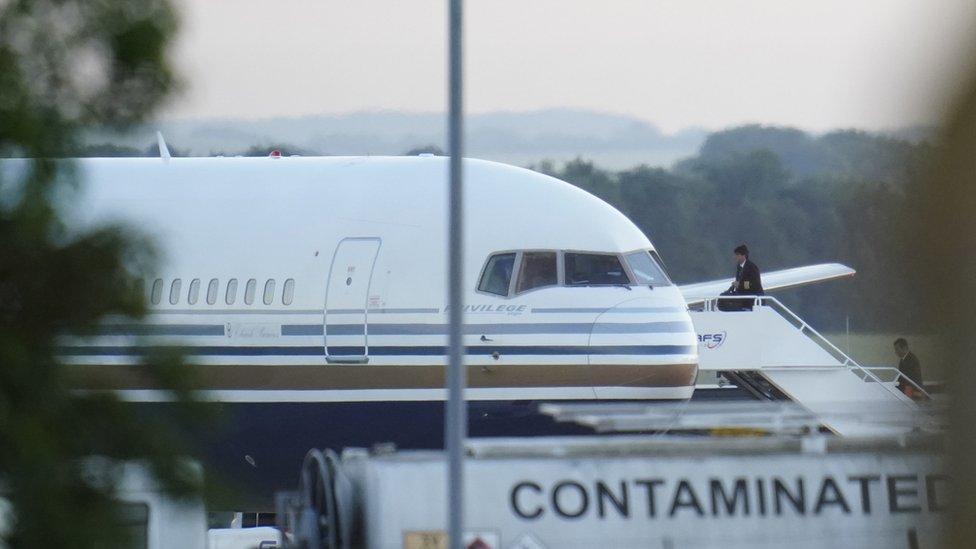
- Published13 October 2022
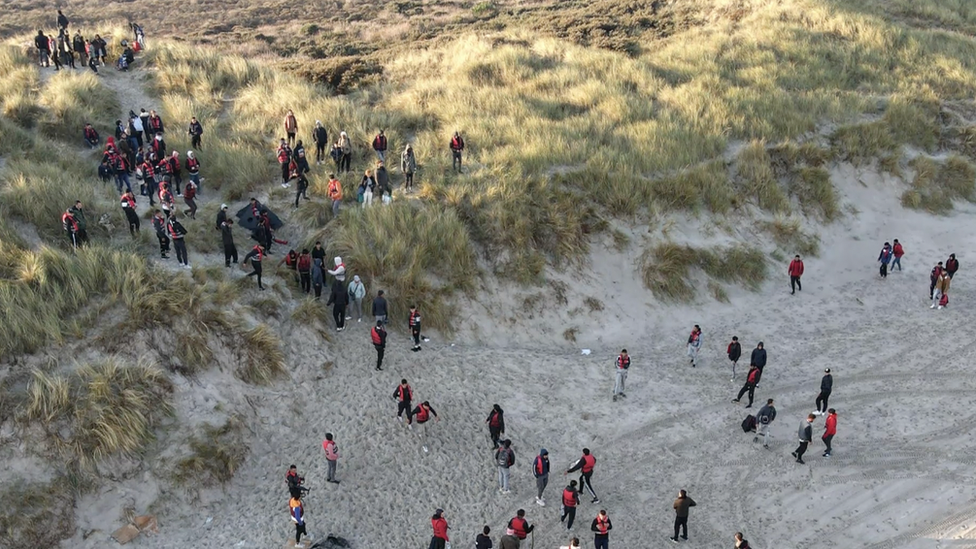
- Published10 October 2022
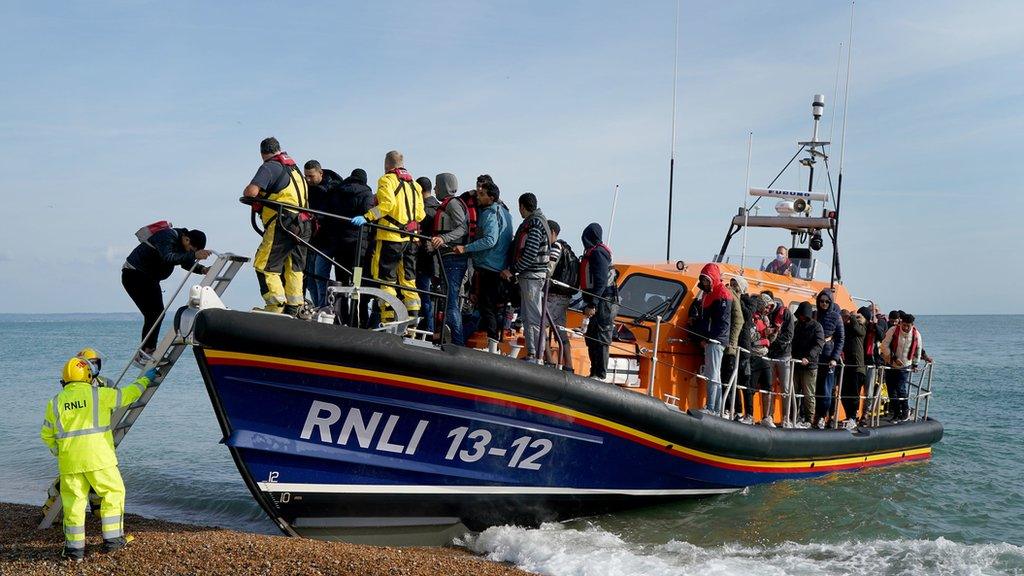
- Published13 December 2023
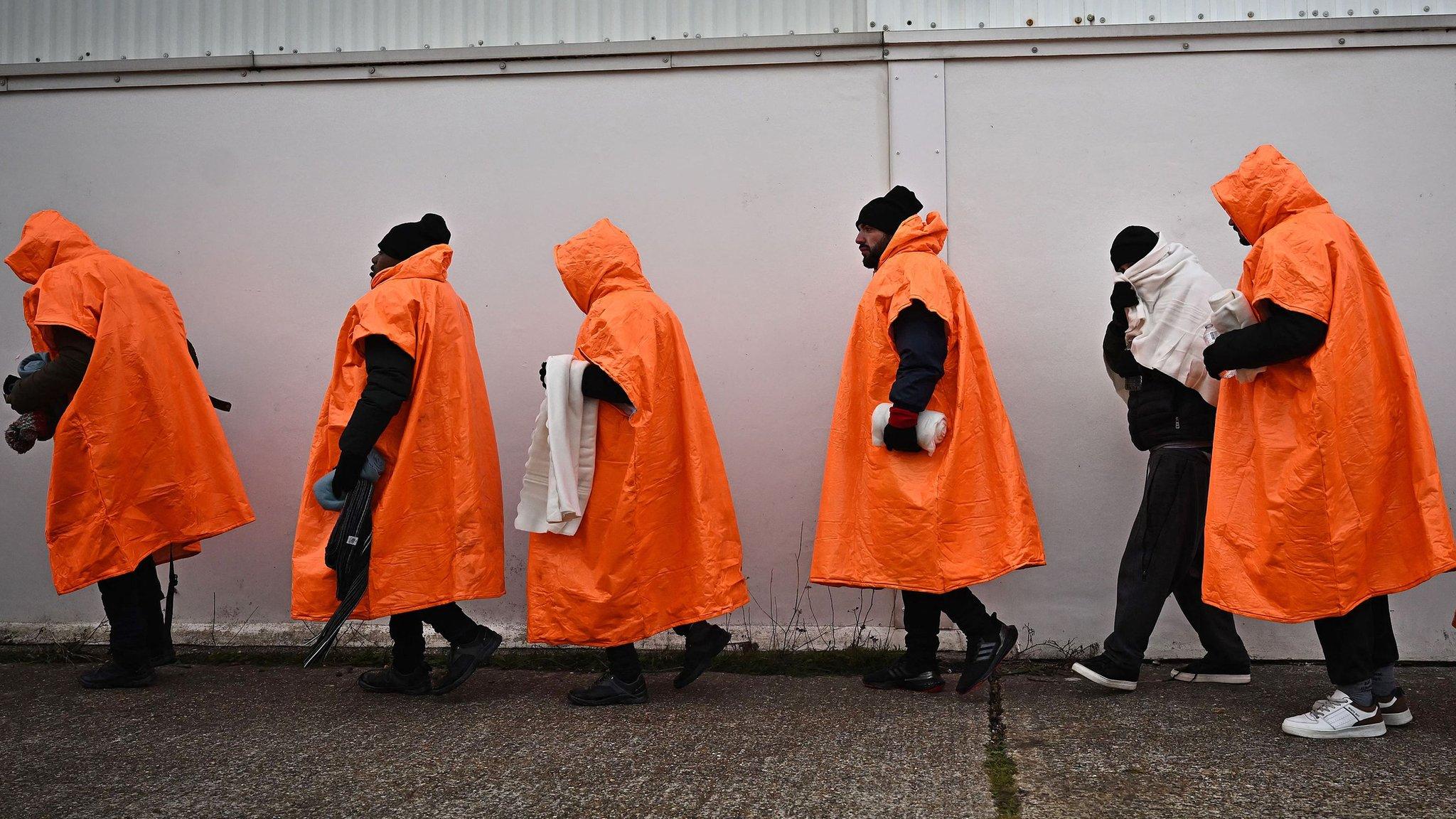
- Published6 October 2022
